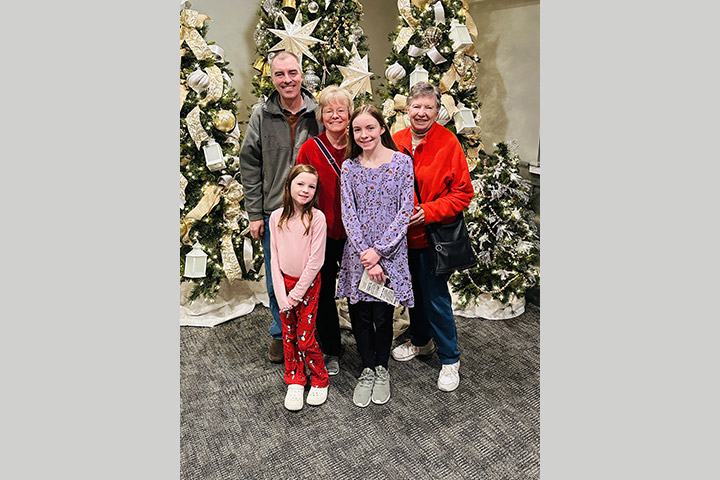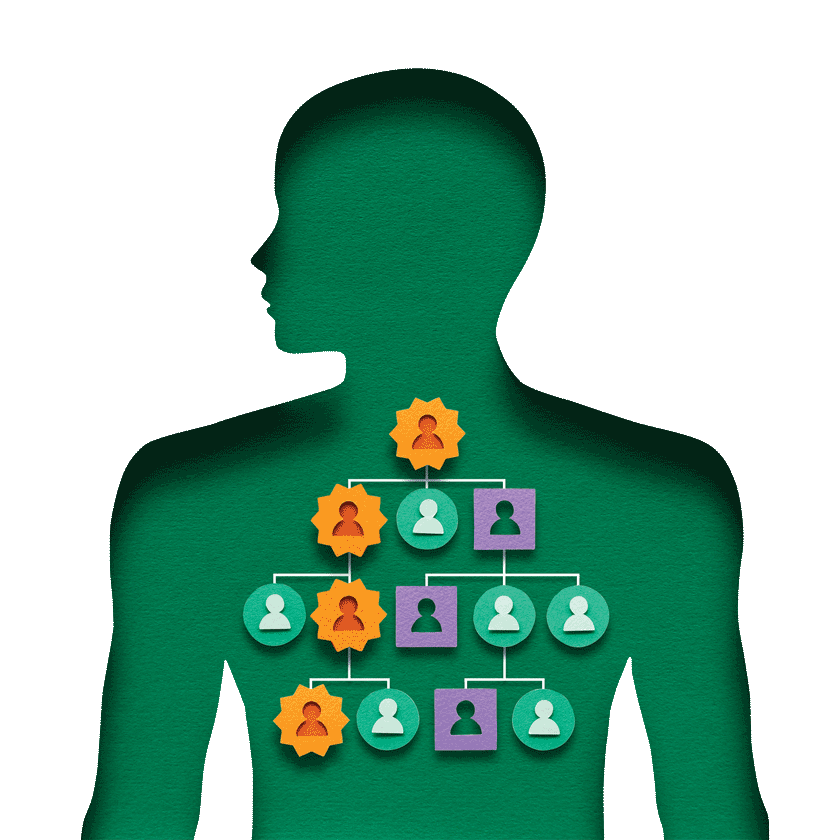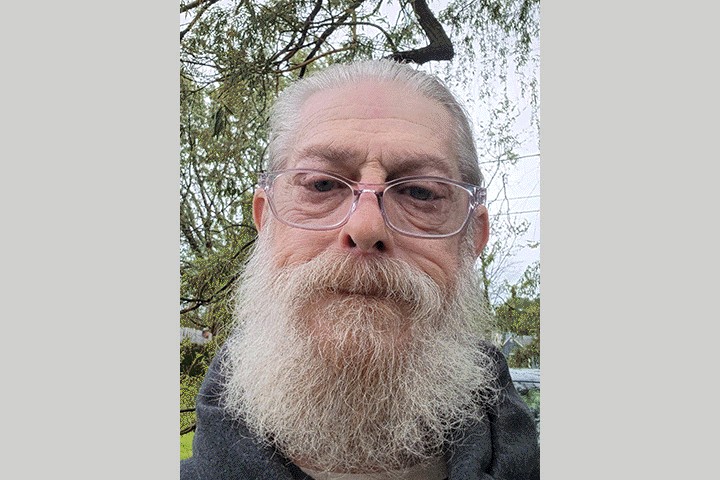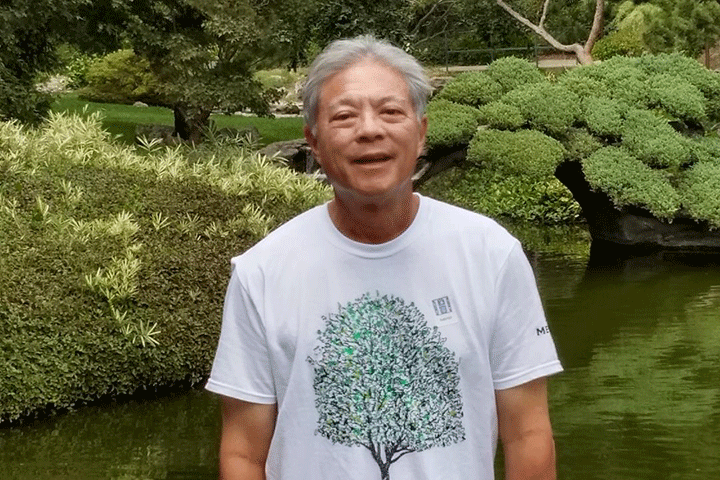A Genetic Mutation Aids My Treatment

- Back pain leads to pancreatic cancer diagnosis
- Getting a second opinion
- Because of BRCA2 mutation, platinum-based chemo recommended
- Chemotherapy, followed by a Whipple procedure and more chemo
Starting in the fall of 2017 and going into the winter of 2018, I experienced three distinct episodes of severe and acute mid-back pain.
After my third episode of back pain, I visited Dr. Jesse Jenkins, my PCP in my hometown of Louisville, Kentucky. He suspected a gall bladder problem and ordered an abdominal ultrasound. My world stopped when he called me within an hour of the test, explaining they saw a mass on my pancreas.
Subsequent tests—CT scan and MRI—were inconclusive and I even received a clean bill of health at one point. However, my brother, a radiologist at the University of New Mexico in Albuquerque, showed my images to his colleagues and everyone strongly recommended that I see an oncologist. After seeing Dr. Gary Vitale at University of Louisville Physicians, I underwent more testing and biopsies. After about six months of testing I was diagnosed with stage I acinar cell carcinoma (ACC), in June of 2018.
A Second Opinion Sets the Course
After discussing the situation with Dr. Vitale and also my brother, I elected to visit MD Anderson (MDA) in Houston for a second opinion. The doctors there, along with my hometown oncology team, prescribed four cycles of neoadjuvant FOLFIRINOX followed by Whipple surgery, followed by another eight rounds of FOLFIRINOX and later FOLFOX chemotherapy. I underwent the chemotherapy in my hometown with Dr. John Hamm of Norton Healthcare and had the surgery with Dr. Ching-Wei Tzeng at MDA. After surgery I returned home for the remaining chemotherapy.
The chemotherapy caused extreme nausea with associated weight loss, fatigue, neuropathy, and slight neutropenia. Some therapies helped me address these symptoms, but in truth it was a struggle. My Whipple has resulted in typical symptoms: gas, and occasional nausea and diarrhea, which are tolerable.
The Impact of a Genetic Mutation
Cancer has long been a presence in my father’s family. My grandmother and first cousin died of breast cancer, my father from prostate cancer, and my uncle from male breast cancer. Before he died, my uncle underwent genetic testing, which showed that he had a BRCA2 mutation. I was tested about 10 years ago and was also determined to have this mutation. Because of my mutation, platinum-based chemo (FOLFIRINOX) was strongly recommended for me. It seems to have worked pretty well—since completing my chemo in April of 2019 I have been free from cancer. Despite the difficulty I had with the chemo, I am grateful that it was available to me.
Because of the BRCA2 mutation I had been undergoing screening for breast and prostate cancer, but not pancreatic cancer, due to its low incidence in BRCA2 carriers and a lack of family history for the disease. Obviously, I wish now that I had also been screened for pancreatic cancer, but I can’t change the past.
I’m grateful for the support of my family, friends, and workplace through this. My wife, mother, and brother were wonderful in the support they provided to me. My workplace colleagues and boss were very accommodating, including many messages of support. My hometown friends were great and I also have several friends who live in Houston and who came to see me in the hospital while I was there. I recognize how fortunate I am to have caught this disease early, to have had access to resources other people may not have, and to have received excellent treatment from my surgical and oncology teams.
Watch Malcolm tell his story in “My Life is Good Now.“





